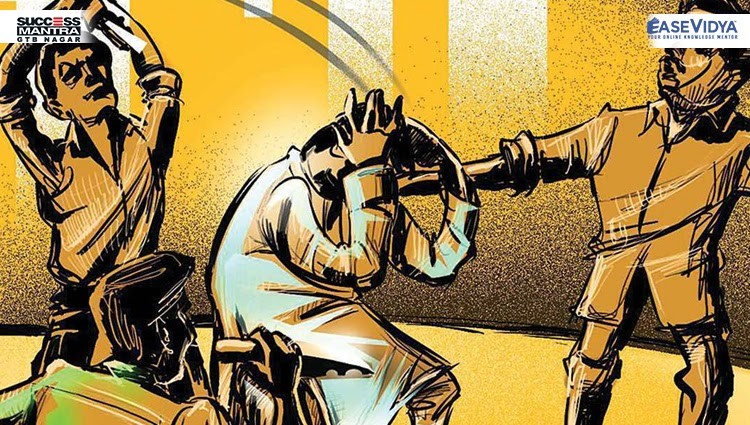
Mob Lynching
January 3, 2022
5 MINUTES
Mob Lynching
Any act or series of acts of violence or aiding, abetting (encouraging) such act/acts thereof, whether spontaneous or planned, by a mob on the grounds of religion, race, caste, sex, place of birth, language, dietary practices, sexual orientation, political affiliation, ethnicity or any other related grounds.
How are these cases handled?
- There is no separate definition for such incidents under the existing IPC.
- Lynching incidents can be dealt with under Section 300 and 302 of IPC.
- Section 302 provides that whoever commits murder shall be punished with death or imprisonment for life and shall also be liable to fine. Offence of murder is a cognisable, non- bailable and noncompoundable offence.
Attempts by various states
- Manipur government came up first with its Bill against lynching in 2018, incorporating some logical and relevant clauses.
- Rajasthan government passed a bill against lynching in August 2019.
- West Bengal too came up with a more stringent Bill against lynching.
Supreme Court guidelines
- There should be a “separate offence” for lynching and the trial courts must ordinarily award maximum sentence upon conviction of the accused person to set a stern example in cases of mob violence.
- The state governments will have to designate a senior police officer in each district for taking measures to prevent incidents of mob violence and lynching.
- The state governments need to identify districts, sub-divisions and villageswhere instances of lynching and mob violence have been reported in the recent past.
- Central and the state governments shall broadcast on radio, television and other media platforms about the serious consequences of mob lynching and mob violence.
- The State Governments shall prepare a lynching/mob violence victim compensation scheme in the light of the provisions of Section 357A of CrPC.












0 Comment